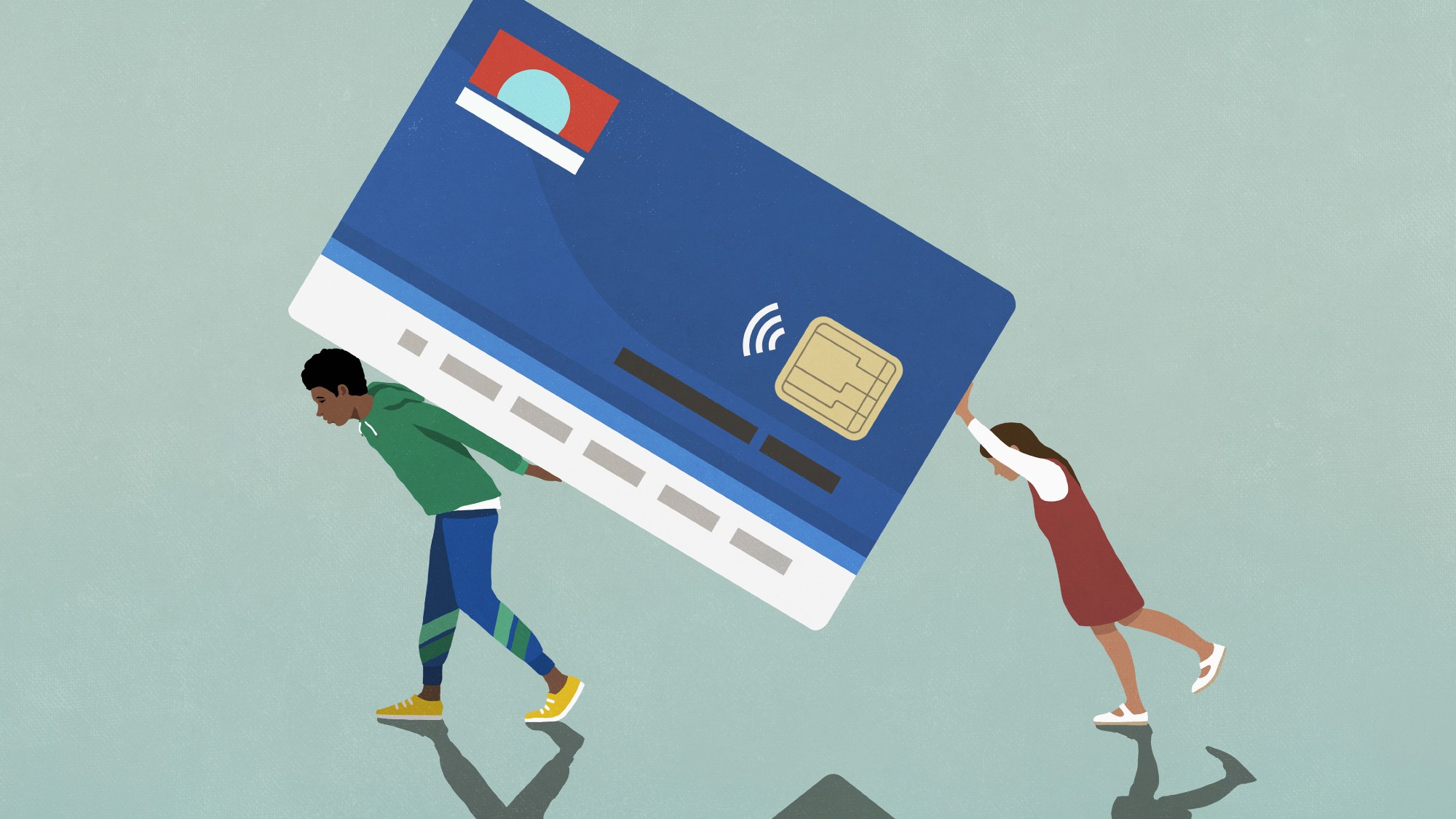3 tips for using credit cards without racking up debt
When used responsibly, these pieces of plastic can have some real benefits


A free daily email with the biggest news stories of the day – and the best features from TheWeek.com
You are now subscribed
Your newsletter sign-up was successful
Using credit cards may feel like a slippery slope — that little piece of plastic is convenient, but can quickly land you in a tough spot financially. As evidence, look no further than the U.S. total of credit card debt.
"Americans collectively owed $1.14 trillion in credit card debt as of the second quarter of 2024, according to the Federal Reserve," said CBS News, which "is up 5.8% year-over-year and reflects a $27 billion increase from the previous quarter."
When wielded wisely, though, credit cards can serve as a great financial tool. For starters, said Bankrate, "with responsible use, credit cards can help you build your credit and earn valuable rewards." They can also provide "travel benefits," "added consumer protections" and "protection against theft and damage on purchases."
The Week
Escape your echo chamber. Get the facts behind the news, plus analysis from multiple perspectives.

Sign up for The Week's Free Newsletters
From our morning news briefing to a weekly Good News Newsletter, get the best of The Week delivered directly to your inbox.
From our morning news briefing to a weekly Good News Newsletter, get the best of The Week delivered directly to your inbox.
To reap those benefits and skip out on the downsides, keep the following three tips in mind.
1. Understand how interest on your card gets calculated
While credit card interest may seem obvious, "how it's calculated is often misunderstood," said NPR. As it turns out, "interest and late fees start adding to your credit card balance the day you miss a payment." Plus, "you'll have to pay interest on interest and fees."
For example, if you have a statement balance of $1,000 and your credit card has an APR of 365, your interest would be compounded at a daily periodic rate (DPR) of 0.00055, said Bankrate in an example. That translates to getting charged $0.55, which "might not sound like much at first, but it can add up, especially because the interest compounds."
So, said Bankrate, while on day 1, your interest will be calculated based on your balance of $1,000, by the second day, your "balance will be $1,000.55 and your interest charges will be calculated based on that amount — and so on throughout the month." Makes you think twice about keeping a balance, right?
A free daily email with the biggest news stories of the day – and the best features from TheWeek.com
2. Avoid spending beyond what you have
Although it is "tempting to think of a credit card as an endless supply of borrowed money," said Forbes, it is actually money that you will have to repay in the very near future. If you don't, you risk racking up some serious interest charges, falling behind on payments, and hurting your credit score.
Staying on top of your credit card spending is easier to do if you "think of it as a debit card in the sense that you don't want to spend more money than you have in your bank account.," said Forbes. Since "only a certain amount of money is available in your bank account each month," realistically you would not spend "more than what's available minus other bills."
3. Aim to make payments in full (and on time)
Another key to savvy credit card usage is to pay your balance in full and on time each and every month. Doing so will help you avoid accruing interest charges or driving up your credit utilization rate — which, if it gets too high, "has implications for your credit score," said CNBC Select. (Generally, you want to aim to keep that rate at under 30% to avoid negative effects.)
Further, paying your balance in full allows you to preserve your grace period, which is "an interest-free period that many credit card companies offer between the time you make a purchase and your payment due date," said NPR. "If you don't pay the full statement balance one time, that grace period goes away — and you'll start accruing interest every day not just on that purchase, but on everything else you buy going forward."
If you are not able to pay the full balance in a given month, at least make sure to pay the minimum. This is the smallest amount you must pay "to keep an account in good standing and avoid late fees," said Forbes.
Becca Stanek has worked as an editor and writer in the personal finance space since 2017. She previously served as a deputy editor and later a managing editor overseeing investing and savings content at LendingTree and as an editor at the financial startup SmartAsset, where she focused on retirement- and financial-adviser-related content. Before that, Becca was a staff writer at The Week, primarily contributing to Speed Reads.
